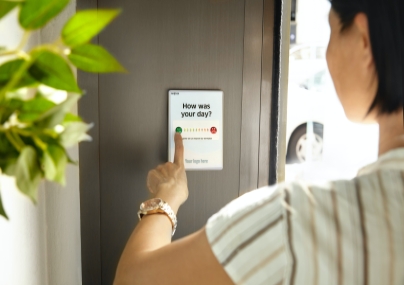China’s stock market seems to have run out of steam. Promising policies that once caught international spotlight and praise from investors appear to have stalled. All of a sudden, efforts at market reform are at a standstill.
The much-anticipated move towards a registration-based IPO system suffered from a major setback earlier in March, when China’s parliament dropped the issue from its annual work report.
Adding to this disappointment is the disillusionment of companies that pinned their hopes on Shanghai’s new technology-focused board as they search for the quickest route to market.
The final version of the 2016-20 plan, published by state-run Xinhua News Agency on March 17 after the annual meeting of the National People’s Congress, did not mention the “strategic emerging industries board”, despite signs only a week before that the launch was definitely on schedule.
Further setbacks to China’s stock market reforms are pushing more companies to do backdoor listings – a practice in which a private company acquires and merges with a publicly traded entity – to bypass the lengthy delays in the country’s backlogged IPO pipeline. The wave of U.S.-listed Chinese companies looking to transfer to a domestic Chinese exchange has also been a major driver.
According to a March 25 report from Essence Securities, a total of 26 companies have unveiled plans for backdoor listings, which are also known as reverse takeovers or reverse IPOs, since the start of 2016.
Eight of those companies, including Hainan HNA Infrastructure Investment Group and U.S.-listed SouFun, have put forward fundraising proposals in conjunction with backdoor listings totalling RMB 35 billion ($5.41 billion) – nearly three times the RMB 12 billion raised from A-share IPOs in the first three months of the year, according to IFR calculations.
“To avoid the queue of companies waiting for IPO, companies with no intention to be listed on the new three boards could resort to backdoor listing,” said Liu Chengwei, a partner with Global Law Office, in an interview with ALB.
He adds, “Though the regulatory standard is as strict as an IPO, backdoor listing enjoys huge advantages in terms of efficiencies in the regulatory process. Of course, with the latest movement of policies, it is expected that the cost of backdoor listing would go up.”
One advantage is speed: Backdoor listings are not subject to the same approval process, which means companies can float much faster. China Grand Automotive Services, for example, took only six months to complete a backdoor listing last June and raised RMB 6 billion from a private share placement at the same time.
Based on Liu’s own calculations, of the 23 backdoor listings in the 2015, it took between three to six months for the China Security Regulatory Commission (CSRC) to approve an application, and the passing rate is 90 percent. These estimates, however, do not include the additional but rarely implemented approving process by the State-owned Assets Supervision and Administration Commission and Commerce Department.
The pace of backdoor listing announcements is picking up. Last month alone, China Zhongwang, YTO Express, Xinjiang Yazhong Logistics and Beijing Jialin Pharmaceutical announced plans to merge with mainland-listed stocks.
They join the 79 companies that announced backdoor listings totalling RMB 550.5 billion in 2015, including both asset injections and new fundraising activities, according to a research report from China Fortune Securities. The 29 backdoor listings that were completed last year set a record for the last three years at least, according to the report.
In comparison, Chinese companies raised a combined total of RMB 157.8 billion from A-share IPOs in 2015, according to statistics from the CSRC.
In addition, volatility in the mainland equity markets led to a four-month freeze on IPO approvals in the second half of 2015, and a renewed market rout early in 2016 has meant the pace of listings this year remains slow.
Scarce and expensive
As a result, however, shell companies that are suitable for reverse mergers have become scarce.
Bankers reckon an ideal shell company for backdoor listing should be a private-sector enterprise with a market capitalisation of no more than RMB3 billion. A simple ownership structure and low liabilities are also essential.
“Shell companies have become more and more expensive,” said a banker. “You can hardly find a shell company with a market cap lower than RMB 3 billion now. But in 2014, there were plenty of RMB 1 billion-sized shells.”
Investors are driving up the price of some smaller stocks on speculation that high-profile technology firms, such as Alibaba’s Ant Financial, Baidu’s iQiyi and Qihoo 360, may turn to backdoor listing after plans for the new Shanghai board were pulled.
Shares in Hundsun Technologies, a financial technology company controlled by the Alibaba Group, jumped by the 10 percent daily limit on three consecutive days late last month, forcing the Shanghai-listed company to deny rumours of a reverse takeover with Ant Financial.
Uncertainty lingers
Although many expect backdoor-listing activities to see explosive growth this year, some bankers believe the option is unlikely to replace traditional IPOs as the main source of equity raising due to the difficulty and uncertainty involved in such transactions.
“Backdoor listings involve a huge workload in negotiating valuations, balancing the interest of existing and new shareholders, as well as due diligence,” said one banker. “If any part goes wrong, the deal may fail.”
Focus Media, for example, hit a major snag in its first attempt to back into a Shenzhen-listed company last year, when the CSRC suspended its application and launched an investigation into irregular information disclosure in the target stock.
This setback forced Focus, which had been listed on the U.S. Nasdaq until 2013, to find a new acquisition vehicle and delayed the company’s relisting for three months. It became the first big U.S.-listed Chinese company to transfer its listing to the A-share market last December.


